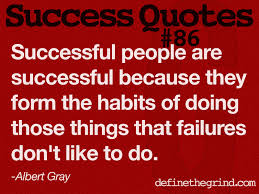
 On the internet and in bookstores, a thousand gurus tout different remedies for human misery. How can we find out which remedies work? We need to consult one of our greatest gurus, the scientific method. Recently we have seen a dramatic upsurge in scientific studies on Positive Psychology and the science of happiness or to put it simply, discovering what makes happy people happy. Fortunately, many of these studies point to specific ways of thinking and acting that can strongly impact our sense of well-being and happiness. The resulting discoveries are enriching the practices of counseling, clinical psychology, psychiatry and life coaching. In these pages, we review the most scientific studies and translate the results into non-technical English.
On the internet and in bookstores, a thousand gurus tout different remedies for human misery. How can we find out which remedies work? We need to consult one of our greatest gurus, the scientific method. Recently we have seen a dramatic upsurge in scientific studies on Positive Psychology and the science of happiness or to put it simply, discovering what makes happy people happy. Fortunately, many of these studies point to specific ways of thinking and acting that can strongly impact our sense of well-being and happiness. The resulting discoveries are enriching the practices of counseling, clinical psychology, psychiatry and life coaching. In these pages, we review the most scientific studies and translate the results into non-technical English.
Is your brain wired to sustain a state of optimal cognitions?
Here's A Happiness Test
Learn More Ideas and Thought ?
Then Watch TEDxTALKS
Also we should never forget the infinite poetic colours of happiness, as the power of linguistics acts to create and manifest the numerous biochemical energy events or processes lumped into the linguistic basket so oft termed as...
"HAPPINESS"
Concepts of Happiness
Across Time and Cultures
 What is happiness? Although the scientific study of happiness and subjective well-being
(SWB) has thrived over the last 30 years, the concept of happiness has been elusive. In fact, Ed
Diener (1984) advocated the use of the scientific term SWB as opposed to happiness precisely
because of the ambiguities associated with the term “happiness.” SWB has been frequently
operationalized as the subjective evaluation of life as a whole, the presence of pleasant emotions,
and the relative absence of unpleasant emotions (Diener, 1984). As SWB research became
popular in psychological science, some researchers started using the term happiness (e.g.,
Lyubomirsky & Ross, 1997). However, the fundamental question regarding the meaning of
happiness has been examined only rarely (see Wierzbicka, 2004 for this critique).
The main goal of this article is to explore various concepts of happiness using current and
historical dictionaries and speeches (cf. Morling & Lamoreaux, 2008; Simonton, 2003). Just as
our understandings of action (Noguchi, Handley, & Albarracín, 2011), emotion (Pennebaker,
2011), cognition (Semin, 2000; Maass, Karasawa, Politi, & Suga, 2006) and culture (Kashima &
Kashima, 1998) have been deepened by detailed linguistic analyses, we believe that the linguistic
analysis of the term happiness is critical to advance psychological theory and the scientific
understanding of well-being.
What is happiness? Although the scientific study of happiness and subjective well-being
(SWB) has thrived over the last 30 years, the concept of happiness has been elusive. In fact, Ed
Diener (1984) advocated the use of the scientific term SWB as opposed to happiness precisely
because of the ambiguities associated with the term “happiness.” SWB has been frequently
operationalized as the subjective evaluation of life as a whole, the presence of pleasant emotions,
and the relative absence of unpleasant emotions (Diener, 1984). As SWB research became
popular in psychological science, some researchers started using the term happiness (e.g.,
Lyubomirsky & Ross, 1997). However, the fundamental question regarding the meaning of
happiness has been examined only rarely (see Wierzbicka, 2004 for this critique).
The main goal of this article is to explore various concepts of happiness using current and
historical dictionaries and speeches (cf. Morling & Lamoreaux, 2008; Simonton, 2003). Just as
our understandings of action (Noguchi, Handley, & Albarracín, 2011), emotion (Pennebaker,
2011), cognition (Semin, 2000; Maass, Karasawa, Politi, & Suga, 2006) and culture (Kashima &
Kashima, 1998) have been deepened by detailed linguistic analyses, we believe that the linguistic
analysis of the term happiness is critical to advance psychological theory and the scientific
understanding of well-being.
The second goal is to demonstrate the utility of a historical perspective on psychological
science. Psychological scientists today are concerned almost exclusively with the latest
developments and cutting-edge research (see Nisbett, 1990; Oishi, Kesebir, & Snyder, 2009). It
is, however, important to document the history of our science and the role that history might play...
Hope you enjoyed this post - now go forth and sustain your state of optimal cognitions.
@savekidstoxo
" the torch has been passed "







No comments:
Post a Comment